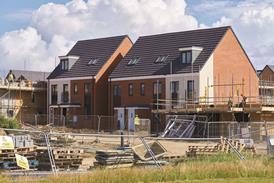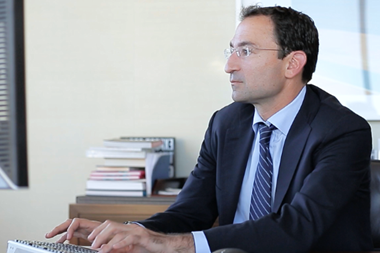With a general election on the horizon this year, the Conservative and Labour parties are focusing on how to harness private capital to drive economic growth, and tackle huge social challenges such as the housing crisis and levelling up.

The importance of the right built environment and hence the vital role of the property sector is increasingly recognised.
Globally, institutions are looking to invest trillions of pounds in real assets and infrastructure, and it is vital that the government ensures the UK is an attractive and secure place to invest.
Against this backdrop, it seems incredible that the government is embarking on an incoherent package of leasehold reform, which will move the goalposts for many investors in the residential sector.
To recap, England is unique in that almost all flats are owned on a leasehold basis, with the land typically owned by a freeholder. The properties are often managed by a property management company that is appointed by the freeholder but funded by the leaseholders via a service charge.
The freehold could also be owned by the flat owners themselves collectively in a separate company, or by a separate freehold owner. The government wants to change this dynamic so that more freeholds are owned by flat owners in a bid to eliminate bad practice.
To achieve this aim, one of the government’s proposals is to cap the ground rent that freeholders receive, potentially at a peppercorn. A problem is that many freeholds are owned by pension funds, which use the ground rent to maintain pensioners’ incomes. There are tens of billions of pounds invested in ground rents, and with the government set to effectively remove the income with no compensation being offered, self evidently, responsible stewards of pensioners’ future and others affected will be fighting hard to protect their interest, including the potential for legal challenge. This, of course, will be a mess for the next government to deal with.
Then there is the question of how freeholders exit the sector. Smaller investors could be at risk of insolvency, others may be forced to walk away or to sell their significantly devalued investment. In all these scenarios, the day-to-day management and maintenance of the building is likely to be significantly impacted.
There would therefore need to be a new model for the management of these buildings. Government research shows most homeowners are happy with blocks being managed by freeholders. The proposed alternative is that leaseholders work together, but at present not enough volunteer as resident directors – and who can blame them, given the time commitment needed, as well as the need to arbitrate in neighbourly disputes and take responsibility for building safety?
To make a success of the new regime, there will have to be a volunteering programme of significant scale. So far, there has been no indication that the government is even thinking about this, let alone planning for it.
For homeowners, this not only raises questions about how buildings will be managed day-to-day, it creates further challenges in an already difficult mortgage market. As it stands, lenders rely on freeholders to enforce many of the covenants that underpin their security, including ensuring the building is safe, insured, and maintained. When lenders get nervous, they tend to either lend less or impose new conditions. The introduction of EWS1 forms to provide lenders with reassurance on building safety is one such example. It follows that lender unease would ultimately put downward pressure on property valuations.
The ultimate question is, who benefits form leasehold reform? The government would argue that in an election year, the aim is to help homeowners. It is clear already from discussions in parliament that they are positioning the issue to tap into a populist mindset.
However, they are not being open about the consequences of what they are doing. Homeowners will now face more uncertainty as to how buildings are managed and probably more challenges with financing as a result.
But more critically, there is a risk that it will only worsen the housing crisis in the longer term. The reforms as proposed would act as a major deterrent to institutional investors by removing income on existing assets retrospectively, and they would no longer have a case for investing in privately-owned residential schemes in future. That is why we are urging the government to think again.
Melanie Leech is chief executive of the British Property Federation































1 Readers' comment